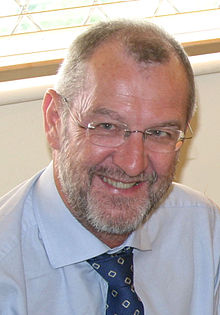Leeds: John Battle chairs J&P conference on food banks

John Battle chaired the Leeds Diocesan Justice & Peace Commission conference entitled "Food Banks: Charity or Injustice?" on Saturday, 28 February, which was attended by about 90 people. One of the Commission's priorities in 2015 is exploring issues of UK poverty and the conference was organised as part of this.
The day started with a review of the results of a survey undertaken by the Commission. The day started with a review of the results of a survey undertaken by the Commission. They wanted to find out more about what individual church and parish communities across the Leeds diocese were doing.
Around 575 individuals responded to this survey - coming from 45 church communities across the diocese. Scaling the results across the diocese means that there are probably in the region of between 1200 and 1500 members of the catholic community in the Leeds diocese regularly providing help.
Almost 80% of people responding thought that problems of food poverty had increased over the last three years - with nearly half thinking that there had been a large increase. Although giving to a food bank was the most common way that people provided aid, there were also many people who provided food aid to other local 'free' schemes or helped in the provision of meals for people who do not have enough to eat.
The conference also heard shocking stories from Leeds and Bradford of situations that have led people to seeking help from food banks. Pat Mc.Geever, Chief Executive of Health for All (Leeds) Ltd and Liz Firth, Development worker for Wellsprings Together Bradford, related stories from their own working experience. In a number of cases, these stories are aboout people who are in work but simply are not earning enough money to feed themselves and their family properly. What came through in all these stories was the loss of human dignity suffered by these people, irrespective of how they were treated by people the food bank.
Richard Bridge, of the Children's centre advice project, provided some context on the increasing use of food banks. His message reinforced the stories told by Pat and Liz: whilst things like Benefits Sanctions have undoubtedly exacerbated hardship for a number of people the underlying causes of the increase in food bank use are to do with low wages and the lack of any effective safety net such as was previously provided by the Social Fund. Dr Ann Marie Mealy explored the situation from a theological perspective.
The Dignity of the Human person was a prominent element of Catholic Social Teaching when applying theology 'with rolled up sleeves' to such situations. Fundamentally, the Gospel is calling us to more than just reacting with charitable intent - which the survey shows the catholic community is already doing. We must also be exploring those underlying causes of these situations and seeking policy changes that will deliver on the fundamental right to having enough to eat - and to the provision of this in a way that maintains the dignity of the human person. In small groups people explored what one question they would ask of Parliamentary candidates about these issues.
People were encouraged to take these questions away, ask them of their candidates and to report back to the Commission who will publish all responses on their website.


















